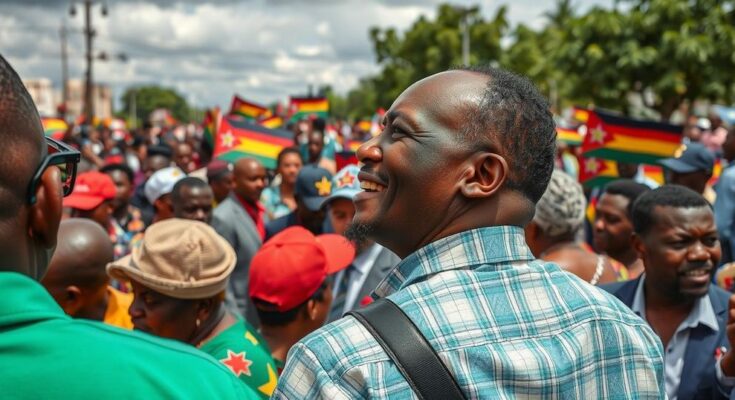Venancio Mondlane, Mozambique’s main opposition leader, returned from exile amidst violent protests against police using tear gas and live ammunition. His supporters sought to greet him at the airport, but tensions escalated due to claims of electoral fraud in the recent election. Mondlane’s return symbolizes hope for change for many young citizens amid ongoing unrest and government backlash.
On Thursday, clashes erupted in Mozambique as Venancio Mondlane, the main opposition leader, returned from exile following the controversial October 9 election. Police deployed tear gas and live ammunition in an attempt to disperse his supporters, who sought to greet him at Mavalane International Airport in Maputo. Protests escalated, resulting in injuries to some demonstrators, as they clashed with law enforcement amidst increasing agitation over claims that the recent election was rigged in favor of ruling party candidate Daniel Chapo.
Mondlane had been in hiding for over two months due to threats against his life following the election-related violence that resulted in numerous fatalities. Upon arrival, he addressed journalists, asserting his presence was an invitation for negotiation and dialogue. He condemned the election as fraudulent, echoing the sentiments of many citizens who feel marginalized after decades of rule by the Frelimo party.
The unrest surrounding the electoral outcome has led to substantial violence, claiming the lives of nearly 300 individuals, including protesters and police officers. The recent endorsement of the election results by Mozambique’s top court has only intensified protests, with the government accusing Mondlane of inciting unrest and advocating for accountability for the damages inflicted during the turmoil.
With Mondlane’s return, many young supporters, such as Fatima Pinto, express renewed hope for change, signifying a potential shift in the political landscape of Mozambique. The ongoing situation raises critical questions about the government’s response and the future of political discourse in the nation.
The political landscape in Mozambique has been tumultuous in recent months following a contentious election. The ruling Frelimo party, which has held power since the end of the war against Portuguese colonial rule in 1975, faced accusations of electoral fraud. The election results, upheld by the Constitutional Council, have led to widespread protests and violence, resulting in significant casualties. Venancio Mondlane, leader of the main opposition party, has emerged as a crucial figure amidst these tensions, advocating for political reform and accountability following election-related violence.
In summary, the return of Venancio Mondlane from exile has highlighted ongoing tensions in Mozambique following a disputed election. The violent clashes between police and his supporters demonstrate the high stakes involved in the country’s political struggle. As calls for unity and negotiation surface, the government must navigate mounting pressure from civil society while addressing widespread grievances among the populace.
Original Source: www.aljazeera.com




